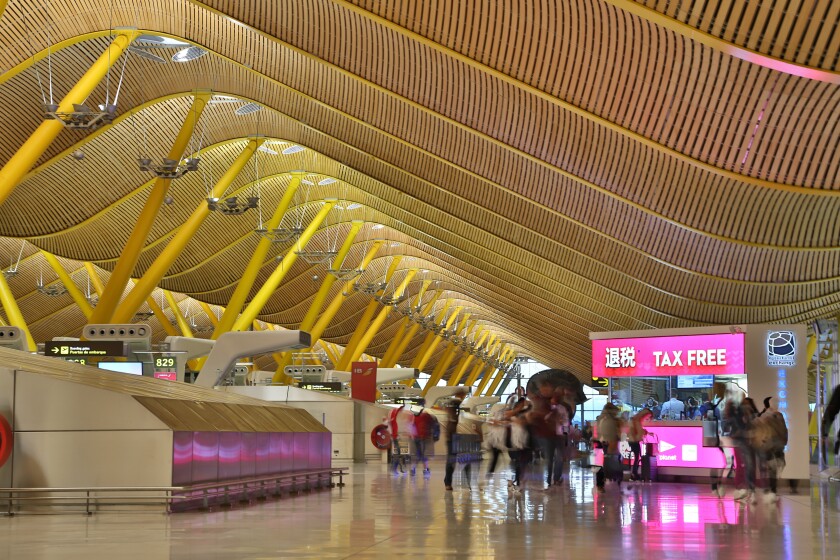The VAT refund scheme for non-EU travellers is regulated in Article 147 of the VAT Directive. The reality is that these transactions are actually considered as exports, but since at the time of the transaction the supplier of the goods (normally the shop where the goods are purchased) is not certain that the goods will leave the EU territory, the supplier must charge VAT on the sale, which will then be refunded to the purchaser of the goods if it is proven that the goods have indeed left the EU territory.
In summary, the system works as follows:
The traveller domiciled in a non-EU country goes to a shop located in the EU, where they purchase a number of items;
The seller charges them the corresponding VAT on the supply;
When the traveller leaves the EU territory, they must present the goods and the purchase invoice to the customs office of departure so that the exit can be recorded; and
The traveller is then required to return the invoice to the supplier and the supplier is obliged to refund the VAT paid.
Some countries that are important tourist destinations, such as Spain, have very advanced and sophisticated VAT refund systems for travellers. These are managed through the use of new technologies, they rarely require paper documents, and they allow VAT refunds to be obtained quickly and efficiently. This is not the case in other member states which continue to use more traditional procedures.
In Spain, from January 1 2019, the VAT refund system for travellers is based on a mandatory electronic documentation system. The refund is obtained through the management of what in Spain is called the “electronic refund document”, which must be digitally validated at the customs office of departure of the goods at specific electronic counters for this purpose and which allows communication at that moment with the tax administration for the approval of the refund.
According to Spanish regulations, the proof of export that will give rise to the right to a refund of the VAT paid on the purchase of the goods is, in any case, this electronic refund document.
The VAT Directive and a problematic scenario
The problem occurs, and the Spanish lawmakers do not seem to have taken this into account, when the goods leave the EU territory at a customs office not located in Spain (which is perfectly possible, considering the right to free movement within the EU), where the electronic documents cannot, in all likelihood, be validated because it is a purely Spanish requirement. Since it is the Spanish administration that must decide on the payment of the refund, if the requirements established by it are not met, in a strict sense, the refund may be refused.
However, the system for refunding VAT for non-EU travellers is provided for in Article 147 of the VAT Directive, and this article requires as proof of departure of the goods the invoice or an equivalent supporting document, endorsed by the customs office of departure. This should be sufficient proof to justify the exit of the goods from the EU territory and to secure approval of the refund.
Any additional processes that may be introduced to make VAT refunds more efficient are always welcome but can never be an obstacle to getting refunds paid. This is precisely what happened in the case of Spain when the exit of the goods did not take place through a Spanish customs office.
Maintaining these additional requirements in the case of Spain would create a discriminatory situation between travellers who leave the EU territory through a Spanish customs office and those who do not, something that is not admissible under EU law and which the Spanish administration has finally clarified, stating that in these circumstances, the duly certified invoice or another document of proof should be a sufficient means for obtaining the refund.
The need for harmonisation
The above reinforces the idea that harmonisation is needed on the VAT taxation of certain activities in the tourism sector, such as the Tour Operations Margin Scheme.
Also, a harmonised procedure for refunds for non-EU travellers would be desirable. This has been on the European Commission's agenda for some time. It is understandable that it is not the most urgent issue right now due to more important commitments such as the VAT in the Digital Age (ViDA) proposal. However, even if the ViDA proposal is a milestone for VAT, there are still important VAT issues on the table that require attention.












